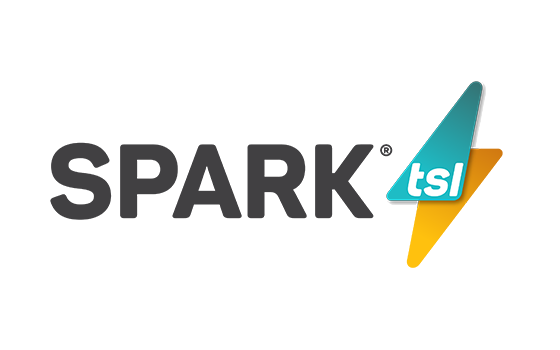 SPARK TSL has appointed David Hawkins as its new sales director, to support take-up of the SPARK Fusion infotainment solution by NHS trusts and health boards.
SPARK TSL has appointed David Hawkins as its new sales director, to support take-up of the SPARK Fusion infotainment solution by NHS trusts and health boards.
SPARK Fusion is a state-of-the-art platform that can be integrated with core IT systems using HL7 messaging to deliver efficiency-enhancing apps alongside communication, entertainment, and information services to staff and patients.
Hawkins, who joined SPARK TSL from one of its partners, said he is excited to be working for a company that is committed to helping its NHS customers to make better use of their existing infrastructure to address the productivity challenges they face.
"SPARK TSL is a different kind of company. It is a telecoms provider that has moved into software that can be used at the hospital bedside to deliver services that improve efficiency and outcomes," he said.
"The Darzi review has shown that the NHS is still in the foothills of digital transformation and there are enormous gains to be made by adopting the deeper-dive transformation that SPARK Fusion makes possible. I am looking forward to supporting SPARK Fusion customers as they go on that journey, for the benefit of their staff and patients."
SPARK TSL is a leading provider of wi-fi to retail outlets, transport and conference venues, but has developed a specialisation in healthcare since it started working with a large London trust in 2005.
In 2020, the company became part of the Volaris Group, which acquired legacy bedside unit provider Hospedia the following year. Since the acquisition, SPARK TSL has been encouraging trusts and health boards to move away from the unpopular and outdated patient-pays model for communication and entertainment.
In April, it acquired Sentean Group, a Dutch company with a unique digital platform that enables apps to be deployed at the bedside on managed or bring your own devices.
This should help trusts and health boards to make communication and entertainment “free at the point of delivery” by delivering quantifiable improvements in efficiency. Over the summer, the SPARK Fusion platform has been fully integrated into the SPARK TSL range.
The apps now available to trusts and health boards include a modern nurse call system that patients can use to indicate what they need before a nurse makes a trip to their bedside and a food ordering app to reduce waste by enabling patients to choose meals that suit them and their condition.
Trusts and health boards can also use the platform to enable patients to complete the Friends and Family Test and other feedback forms, and to ensure patients have proactive information about their condition to promote recovery and reduce readmission rates.
In the Netherlands, patients can also use the platform to control room temperature and lighting, and staff can set electronic door signs; features that align with NHS England’s vision for the 'digital hospital' of the future.
Matt O'Donovan, group leader of SPARK TSL, said: "David's appointment demonstrates our commitment to SPARK Fusion and to making sure as many trusts and health boards as possible can benefit from it.
"David understands technology and the benefits that it can bring to services, staff and patients, which is the focus of SPARK Fusion. The NHS is crying out for innovation that can work with its existing systems and infrastructure to deliver real and quantifiable improvements to productivity.
"SPARK Fusion absolutely fits the bill, and like David I look forward to seeing more and more trusts and health boards both adopting it and seeing the benefits."
SPARK TSL will be demonstrating SPARK Fusion at this year’s Healthcare Excellence Through Technology from stand F10 in the exhibition hall. This year's HETT runs from 24 to 25 September at ExCeL London.
About SPARK TSL
SPARK TSL is transforming the future of healthcare through innovative wi-fi and media solutions, cementing its position as the leading provider to the NHS. With a mission to revolutionise the way hospitals connect, SPARK TSL is committed to delivering technology that empowers both staff and patients.The groundbreaking SPARK Fusion product is at the heart of this transformation. By introducing state-of-the-art touchscreen technology and a dynamic digital platform, SPARK Fusion enables hospitals to seamlessly integrate clinician- and patient-friendly apps, improving efficiency and patient care. This advancement not only enhances the patient experience with ‘free at the point of use’ entertainment and information, but also equips staff with powerful tools to streamline their work and improve outcomes.
Following the acquisition of Hospedia by its parent company, Volaris Group, in 2021, SPARK TSL has replaced outdated systems with cutting-edge solutions designed to meet the evolving needs of the NHS. SPARK TSL's vision is clear: to foster innovation in healthcare, improve patient well-being, and support NHS staff by providing the digital infrastructure that drives the hospitals of tomorrow.